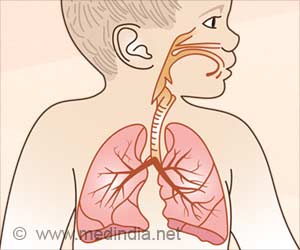
‘As the National Capital Region fights poor air quality during winter, the All India Institute of Medical Sciences (AIIMS) has begun a research project titled DAPHNE (Delhi Air Pollution Health and Effects) to investigate the impact of air pollution on public health.’
Read More..Tweet it Now
"It has been seen that exposure of pregnant women to the high level of air pollution sometimes leads to premature delivery or affects the birth rate as well. It is not yet substantiated, however, that pollution will cause any congenital malformation. The result of the study will help us get a clearer picture," Kiran Guleria, a gynecologist at the GTB Hospital, told IANS. Read More..
She is a part of the research and working at the Department of Biochemistry in the city-based University College of Medical Sciences.
The research is a part of the study titled "DAPHNE" (Delhi Air Pollution Health And Effects), where the All-India Institute of Medical Sciences (AIIMS) is also doing a project related to the effect of pollution on children with respiratory problems.
Guleria said that the research primarily focuses on monitoring the fetus and the unborn child, which will involve observing the baby in the womb and mapping its growth.
"The study will help us understand and see the effect of pollution on the unborn child regarding growth, respiratory problems like asthma or other allergies. After birth, the child will also be observed for two years," the health expert noted.
Advertisement
"It will give a clear picture on the impact of pollution during different seasons as well. Simultaneously, we will collect blood and urine samples to understand it better. After the child is born, we will even examine the cord blood to see how much transition of air pollution has happened from the mother to child," Guleria added.
Advertisement
Funded by the Department of Biotechnology, Ministry of Science and Technology, India, and Medical Research Council, Britain, the project is a collaborative effort of the two nations.
In India, apart from the GTB Hospital and AIIMS, Sri Ramachandra University, Chennai, and IIT Delhi are also associated with the research.
Source-IANS










